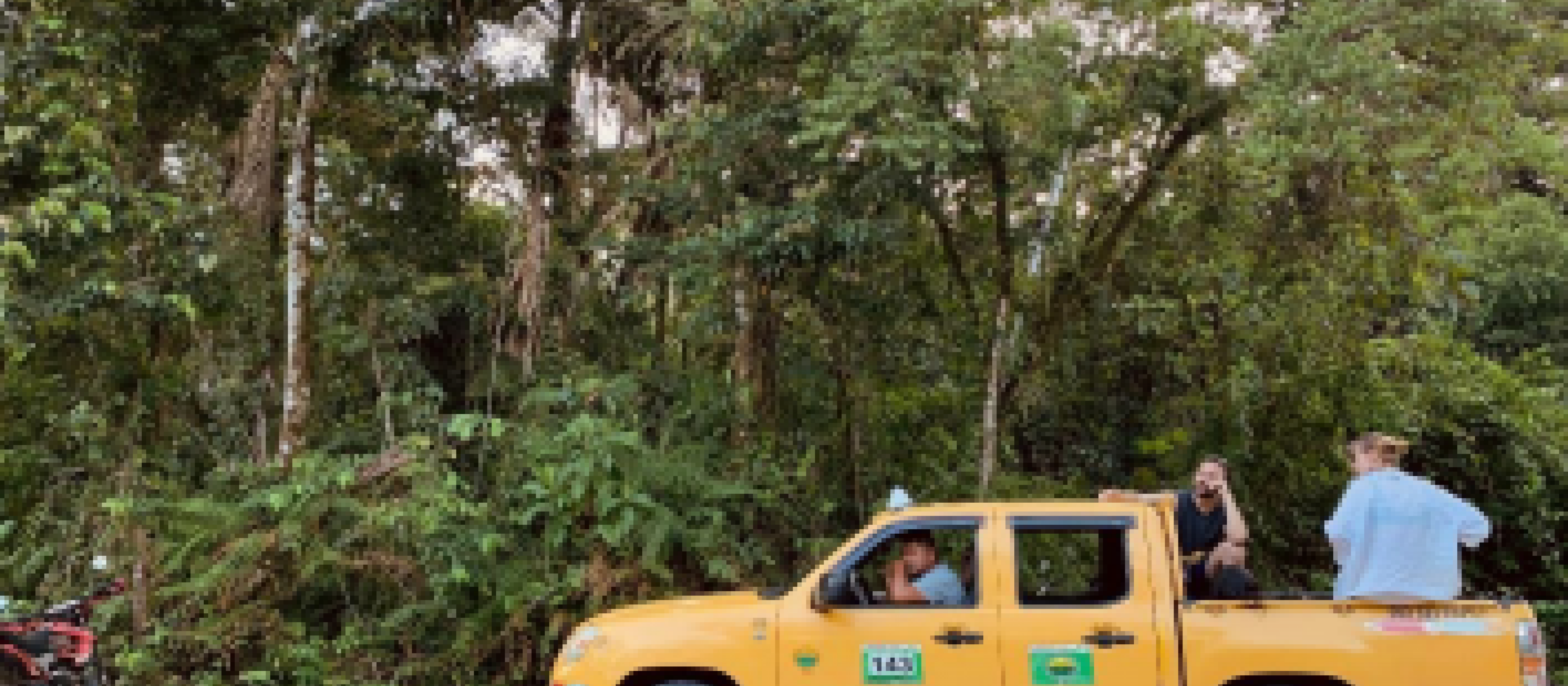CIVIL SERVICE WITNESSES: FRANCESCO'S STORY
‘’Fragments Of Everyday Life’’ di, Francesco Trombetta, Servizio Civile Tena (Ecuador)
It is remarkable, the kind of relationship that arises between two strangers who, in a fragment of everyday life, find themselves sharing a confined space, side by side. One offers the ride, the other the payment. In some cases, however, the cold wall of silence is broken, and brief conversations take place. Although these encounters are fleeting, they are not devoid of intensity, and from the taxi drivers’ perspective, they bear witness to a country grappling with serious social, environmental, and economic problems.
Joan is driving me home after a long tour of the city. He tells me that he comes from far away, from the south of the country, and that he spent his life as a bus driver. He speaks with pride, emphasizing the 35 years spent in that seat. But old age has wearied him, and now he drives a taxi, earning $1.25 for each trip, $1.50 at night. He asks me what I am doing here in Ecuador. I briefly share my story, though I am more eager to hear what he has to say. “It seems to me that only foreigners are interested in protecting Ecuador’s natural wealth,” he remarks. I reply that, although I have only recently arrived in Ecuador, I have met several local people committed to this cause. Some fight quietly, often with limited means. Joan goes on to speak about the illegal logging of timber trees and the expansion of cocoa and coffee monocultures. He recalls a time when his bus was forced to stop for several hours in front of a felled tree, with a trunk so wide that not even five men together could encircle it. But the ride is short, so I thank him and get out at my gate.
It is true that, when speaking of primary forest, people often point out how it has already been “aprovechados”—depleted of its commercially valuable tree species. And it is also true that monocultures are expanding rapidly around Tena. Yet most of these belong to small farmers and represent their only source of income. In a context where social and economic rights are not guaranteed, it is difficult to imagine that environmental rights could be.
I am back in downtown Tena. I hail a taxi on the fly to get home. I get in and start off by complaining about the heat and my wish for a little rain. This somewhat provincial “bar-style” opening seems to unlock in Gabriel an unusual sense of familiarity that encourages him to speak. He is not from Tena either, but comes from a remote town in the province of Loja, in the south of the country. He arrived here thirty years ago.
He tells me that in the past it used to rain heavily, and bad weather could last for entire days. Winter, that is, the rainy season never failed to arrive. In his time, the water level of the Napo River during the dry season matched what it is now during the flood season. “It doesn’t rain anymore,” he says, “it doesn’t rain anymore.”
Besides him, the whole town has noticed this year that the climate is clearly changing. From September to December, electricity was unavailable for up to eight hours a day, due to the inability to generate power from the exhausted, dried-up rivers. He waited fifteen minutes before asking me where I was from and what I was doing in Ecuador, but the imminent arrival at my home leaves no time for stories. I hand him a few dollars in thanks and step out of the vehicle, knowing I will never see him again.
Fabian laughs, and his laughter is contagious as he drives me toward a riverside resort just outside Tena. He’s a friendly guy, you can tell right away. We exchange a few words to introduce ourselves and then end up talking about Ecuador’s coastal region. I ask, “What’s the situation over there?” Fabian doesn’t hesitate: he raises his hand like a gun and tilts his head, pretending to dodge bullets. Meanwhile, he keeps driving, his laughter still echoing. He tells me those areas are dangerous and advises me to be very careful if I ever go there. I laugh too, a little taken aback, and then thank him as I open the door and get out of the taxi.
“They party there, you can find everything: alcohol, drugs, women.” That’s what Lenin tells me when I ask him to drive me downtown, near a well-known club in Tena. I’m struck by the driver’s unexpected openness, unusual around here. So I decide to continue the conversation, which had started so abruptly.
“I know, I’ve been in Tena for eight months now,” I reply.
“Do you use that stuff?” he asks.
“No, sir, never tried it. And you?” I counter.
“From fifteen to twenty years old, I had a lot of fun, but then I stopped. I met a woman and decided to give it up, then…”
“Then?” I’m now curious about his story.
“Then we were together for six years, until she had to move to the United States with her parents.”
“And you?” I ask.
“She wanted me to go with her, but I decided to stay. This place, this land, is my home.”


